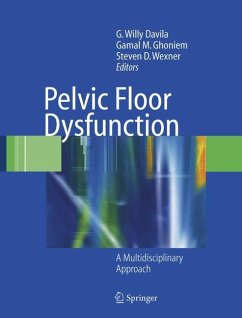
Complications in Gynecological Surgery

PAYBACK Punkte
19 °P sammeln!
Risk management is a relatively new process that can sometimes evoke feelings of suspicion among clinicians. However, when used proactively, it offers the opportunity to act at the root cause of an incident to expose de? ?ci- cies in the system rather than in individuals. This process encourages a s- portive approach to patients, relatives, and staff. The overall aim should be to learn lessons rather than to attribute blame. References 1. Vincent C, Neale G, Woloshynowych M. Adverse events in British hospitals: a p- liminary retrospective record review. Br Med J. 2001;322:517-519. 2. Neale G, ...
Risk management is a relatively new process that can sometimes evoke feelings of suspicion among clinicians. However, when used proactively, it offers the opportunity to act at the root cause of an incident to expose de? ?ci- cies in the system rather than in individuals. This process encourages a s- portive approach to patients, relatives, and staff. The overall aim should be to learn lessons rather than to attribute blame. References 1. Vincent C, Neale G, Woloshynowych M. Adverse events in British hospitals: a p- liminary retrospective record review. Br Med J. 2001;322:517-519. 2. Neale G, Woloshynowych M, Vincent C. Exploring the causes of adverse events in NHS hospital practice. J R Soc Med. 2001;94:322-330. 3. Walshe K. The development of clinical risk management. In: Vincent C, ed. Clinical Risk Management. London: BMJ Publishing Group; 2001, p. 45-60. 4. Department of Health. An Organization with a Memory. London: HMSO; 2000. 5. National Patient Safety Agency. Reporting incidents. Available at: nhs.uk/health/reporting. Assessed June 25, 2007. 6. National Con? ? dential Enquiry into Perioperative Deaths. Changing the way we operate. The 2001 Report of the National Con? ? dential Enquiry into Perioperative Deaths. London: National Con? ?dential Enquiry into Perioperative Deaths; 2001. Available at: Assessed June 25, 2007. 7. General Medical Council. Good Medical Practice. London: General Medical Council; 2006. Available at: asp.














